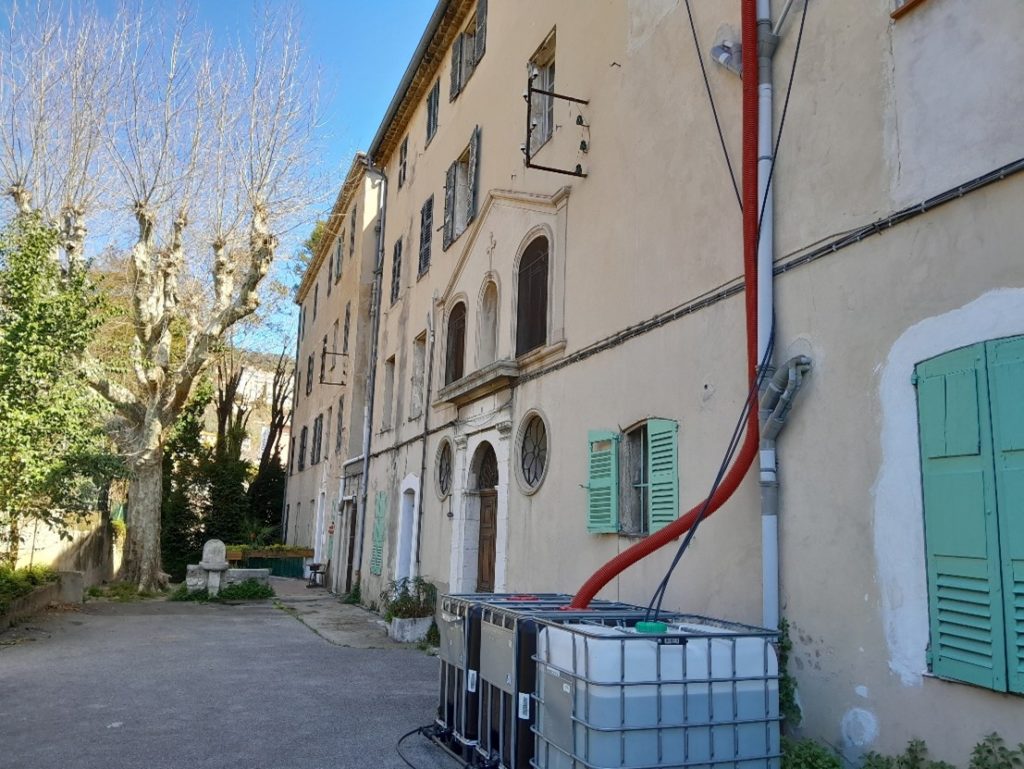These notes were taken during the visit to the Tiers Lieu Sainte Marthe, in the framework of the workshop “Territory of energy with and for citizens” jointly organised by MALTAE and the municipality of Châteauneuf de Grasse, an activity that is part of the Erasmus+ project dedicated to energy communities.
In his introduction, Philippe Chemla, co-founder of TETRIS, returns to the notions of the “third place”, of pilot projects, of ecological and solidarity-based transition, and of Digital Factories of Territories. [The “third place” is distinguished from the first place, the sphere of the home, and the second place, the sphere of work. It is understood as a complementary space dedicated to the social life of the community, and refers to areas where people can meet, gather and interact informally. Source: https://forum.wordreference.com/threads/tiers-lieu.3373990/]. He recalls the raison d’être of TETRIS (based in the “Tiers Lieu” Sainte Marthe): territorial ecological transformation through research and social innovation, its non-specialised mode of operation and its various modes of financing. Finally, he addresses the notion of “third place” networks and territorial networks.
The visit then begins with the digital workshop, where TETRIS approaches are put into practice, and where you can see the tools developed in collaboration with agriculture, machines such as the 3D printer or the digital milling machine, and the computer reconditioning area, etc.
Finally, we go up to the roof to discover the self-consumption kit and talk about energy sobriety.
The visit continues in the Chapel, where an art installation raises awareness of the sounds of life on the ground.
This is followed by a visit to the water recovery system and the show flat, which once again illustrate the TETRIS philosophy: to propose and test solutions in which the optimisation of uses, collective intelligence and recycling are often more important than technology.
The bioclimatic greenhouse is an opportunity to demonstrate how a simple training day on building with earth and straw can lead, thanks to a characteristic territorial dynamic, to the creation of a new “third place” and a new economic sector around eco-construction.
The next step is a visit to the vermiculture farm, the poultry house and the autonomous composting platform, where all the centre’s bio-waste, as well as that of the partners, is already being treated in anticipation of the regulation on sorting and recycling at source of bio-waste that will come into force on 1 January 2024.
Finally, the last stage of the visit addresses the issue of soil de-artificialisation through two examples: the technosol, which has made it possible to transform a bitumen surface into living soil in four years, without major works, simply by adding plant residues. And the aromatic and medicinal herb garden, which produced a large quantity of food in its first year and is now the basis of a new local activity (commercialisation of herbs).
To find out more, click here (in French).

